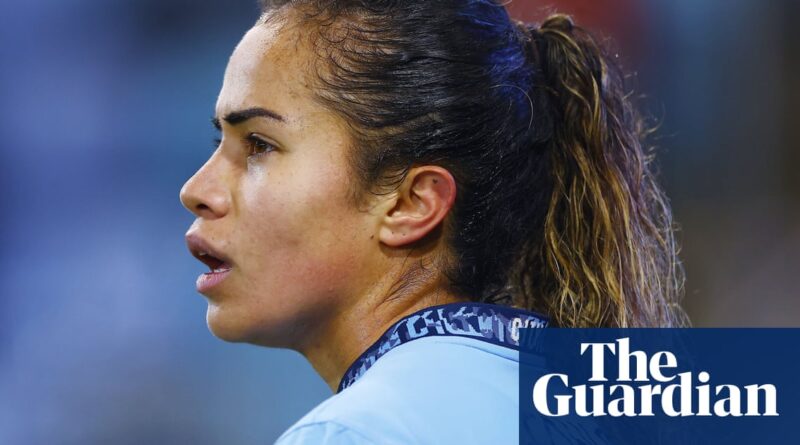Athletes’ break gives women’s sport mental health awareness | Jack Snape
This success in women’s sports has brought fame and fortune to many female athletes, but increased exposure, increased pressures and the pressing demands of time have forced an increasing number from the limelight and into seek help with their mental health.
Matildas player Mary Fowler is the latest athlete to take time out to deal with mental and physical fatigue, after she withdrew from Australia’s squad for the upcoming friendlies against Brazil and Taiwan.
She follows winger Cortnee Vine, as well as leading athletes in other sports including Meg Lanning in cricket, Ash Barty in tennis and Ariarne Titmus in swimming, who have all been at the forefront of their mental health issues and they take a break with their own comfort in mind.
Fowler’s Matildas partner Tameka Yallop says the growth in women’s football is a good thing, but it means there is a greater demand for players. “It’s something you have to pay attention to and take care of each other like that, and know when to take your time,” he said Monday. So we will miss Mary [Fowler] this camp, and the Vine [Cortnee Vine]but it’s a good thing about how big women’s football is. “
The emphasis on expanding the sports schedule has been physical fatigue and the risk of injury, but the growth of women’s sports has been accompanied by a growing awareness of mental health.
Athletes are more likely than the general population to have mental health problems and sleep problems, according to a paper published this year from researchers at Flinders University, and experts who are increased pressure on women’s sports.
Sports psychologist Michael Inglis, who works with athletes in a variety of sports including Australian rules football and is the lead psychologist for Professional Footballers Australia, says he has seen the speeches of footballers about four in the last five years.
“This has been something that has been being built for a while in many sports, both men’s and women’s sports, but this is the first time we see it in the women’s football field,” he said.
Having worked at the top level for more than a decade, Inglis has watched women’s team sport go from a casual or part-time activity alongside work or study, to a full-time career.
“There has been a huge and dramatic change, but what this does from a psychological point of view is to change their identity as players. Before, what they had was a very shared identity in terms of that who they were, where they had backup, if you like,” Inglis said.
“Now we’re in a professional game, where everything is so focused on their game and their identity can be so fragile, and there can be mental health consequences because of that. .”
Two weeks ago Vine explained his reasons for taking a break. He says: “I am sure that many people can appreciate that my life has changed a lot in the last two years.
after the news release
Vine scored the winning goal when the Matildas beat France at the World Cup last year, becoming one of the country’s most recognizable athletes almost overnight. She moved to the NWSL with the North Carolina Courage this season along with partner and fellow player Charlotte McLean.
“Because of these new and sometimes stressful experiences, I found that knowing, managing and prioritizing my mental health was something I needed to work on,” said Vine.
Inglis said growing awareness of mental health means elite athletes are willing to seek out professionals and be open about their inner struggles – even sharing their experiences publicly.
“For others they may describe it as depression or eating disorders. For others, they may say ‘I can’t feel myself’, or have problems with a relationship that may be personal, or sometimes in a group they play with they feel like they need to talk to see. man,” he said.
Football Australia has lined up four friendlies for the Matildas over the next two weeks, partly to give the club opportunities to play at a higher level, but also to capitalize on the popularity of group.
Yallop said players should not be “full” during the game’s growth spurt. He said: “We are having more games and more exposure, so the players need rest and time to recover.”
Inglis said the decisions of Vine and Fowler should be a wake-up call for officials. “There’s an opportunity here to listen to what they need, and how we meet those needs, so we have our best athletes on the field as much as possible.”
#Athletes #break #womens #sport #mental #health #awareness #Jack #Snape
